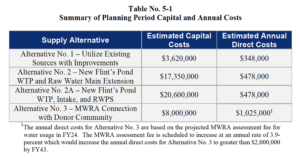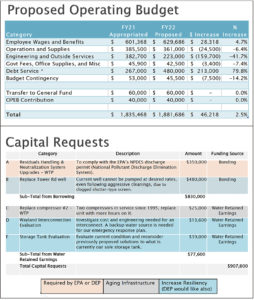Public forums scheduled on Bicycle & Pedestrian Master Plan
 The Bicycle & Pedestrian Advisory Committee is hosting four virtual public forums to review the Bicycle & Pedestrian Master Plan draft and collect feedback to improve the plan. There will also be a short presentation about the master plan at the State of the Town meeting in November.
The Bicycle & Pedestrian Advisory Committee is hosting four virtual public forums to review the Bicycle & Pedestrian Master Plan draft and collect feedback to improve the plan. There will also be a short presentation about the master plan at the State of the Town meeting in November.
The master plan, which was drafted by BPAC in consultation with the Planning Department, the Metropolitan Area Planning Council, and other town committees and departments, aims to make Lincoln to be more safe, green and accessible for residents and visitors traveling by foot and bike.
The public forums each focus on one region of Lincoln, but the BPAC will review the overall plan at each forum and are happy to discuss any region of town at any meeting if participants desire.
- Thursday, Oct. 13 at 7:30 p.m. — North Lincoln (Route 2 and north). Zoom link.
- Thursday, Oct. 20 at 7:30 p.m. — South Lincoln (Route117 and south). Zoom link.
- Wednesday, Oct. 26 at 7:30 p.m. — East Lincoln (east of Lincoln Road/Bedford Road, south of Route 2 and north of Route117.) Zoom link.
- Wednesday, Nov. 2 at 7:30 p.m. — West Lincoln (west of Lincoln Road/Bedford Road, south of Route 2 and north of Route117.) Zoom link.
More information:
Watering restrictions still in effect
 With the continued Stage 3 drought, the state requires maintaining water use restrictions. To comply, the Lincoln Water Commission voted unanimously to extend water use restrictions in Lincoln beyond the traditional stop date of September 30. When drought restrictions are ended, a posting will be made on the town website and via other means. Don’t hesitate to contact the Lincoln Water Department if you have any questions (781-259-2669 or lafalamd@lincolntown.org).
With the continued Stage 3 drought, the state requires maintaining water use restrictions. To comply, the Lincoln Water Commission voted unanimously to extend water use restrictions in Lincoln beyond the traditional stop date of September 30. When drought restrictions are ended, a posting will be made on the town website and via other means. Don’t hesitate to contact the Lincoln Water Department if you have any questions (781-259-2669 or lafalamd@lincolntown.org).
During Stage 2 and above, Water Department staff monitors all sprinkler use in town and will stop to remind residents of the restriction policy. A first offence will result in a $100 fine, and subsequent violations will result in a $200 fine. For more information, see this Restrictions, Conservation & Water Use page and the Executive Office of Energy and Environmental Affairs’ drought page.
Film screening: “After Life”
The Lincoln Library Film Society will screen “After Life” (1998) directed by Hirokazu Kore-eda on Thursday, Oct. 20 at 6 p.m. If you could choose only one memory to hold on to for eternity, what would it be? In Japanese with English subtitles. Free and open to all.
Walk to benefit SVdP food pantry
Join a walk to benefit the Society of St. Vincent de Paul of Lincoln and Weston, which operates the food pantry for the two towns, on Saturday, Oct. 22 at St. Julia Church (374 Boston Post Rd., Weston) along Weston’s rail trail (approximately 2.2 miles). Check-in/same-day registration begins at 9 a.m. and the walk at 9:30 a.m., with an ice cream social at 10:30 a.m. Pre-register by October 15 to receive an SVdP gift. Suggested donation: $10 per person/ or $25 per family. Click here to register and/or donate. For more information, email svdplincolnweston@gmail.com.
“Opera for Everyone” series returns
The Friends of the Lincoln Library present their annual “Opera for Everyone” series on three Sundays from 2–3:30 p.m. at the library. Opera lecturer Erika Reitshamer returns to enlighten, inspire and entertain while passing along her vast knowledge of opera and opera lore to Boston’s educational institutions. Her last offering for Lincoln Library was a lecture on “It Takes Two to Duet,” just in time for Valentine’s Day on February 12, 2022.
- October 23 —Donizetti’s “The Elixir of Love”
- October 30 — Rossini’s “The Barber of Seville”
- November 6 — Rossini’s “The Italian Girl in Algiers”
Click here for plot details.
Family Halloween activities at deCordova
The deCordova Sculpture Park and Museum offers moonlit sculpture-building activities with deCordova faculty, self-guided mysteries to solve with friends and family, and a sweet treat or two along the way on Friday, Oct. 21 and Friday, Oct. 28 at 5:30 p.m. Cost is $35 per family ($28 for member families); click here to select date and buy tickets. For more information, call 781-259-3647.
Pumpkin Palooza for kids at library
The Lincoln Public Library will host Pumpkin Palooza on Saturday, Oct. 29 from 10:30 a.m.–noon. Wear your costume and join us on the library lawn for Halloween fun: pumpkin painting, activities, crafts, and more. Drop-in; best for ages 6 and under.
Purple lights highlight domestic violence awareness
Why are those buildings purple? Purple, it is said, is the color of courage, survival, honor, and hope. It is also the color recognizing Domestic Violence Awareness Month each October. For the past several years, the Sudbury-Wayland-Lincoln Domestic Violence Roundtable, in collaboration with the Lauren Dunne-Astley Memorial Fund and First Parish in Wayland, has chosen to light the towns of Sudbury and Wayland in purple. They have lit numerous faith and public buildings in Sudbury and Wayland and have posted banners and signs in all three communities. The Roundtable invites local businesses and homeowners to join in by adding their own purple lights. Inexpensive 4.5 watt Feit purple LED Electric bulbs are available at Ace Hardware in Wayland and Aubuchon Hardware in Sudbury.








 Water Department Superintendent MaryBeth Wiser has resigned as of Jan. 1, 2021. The change will mean another recruiting push for the embattled department, which has seen budget and personnel turmoil resulting in substantial capital spending and water rate increases.
Water Department Superintendent MaryBeth Wiser has resigned as of Jan. 1, 2021. The change will mean another recruiting push for the embattled department, which has seen budget and personnel turmoil resulting in substantial capital spending and water rate increases.